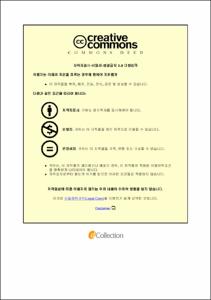소아 뇌전증 환자에서 식이 요법의 초기 반응을 이용한 치료 유지 결정
- Abstract
- Abstract
Author: Soo-young Lim
Affiliation: Department of Pediatrics, Asan Medical Center Children’s Hospital, University of Ulsan College of Medicine
Title: The early response to dietary therapy can predict the late outcome in children with intractable epilepsy
Purpose: Dietary therapy (DT), including the ketogenic diet (KD), is one of the nonpharmacological treatment options for patient with drug-resistant epilepsy. However, maintaining DT in patients without seizure reduction is very difficult, so it is critical for clinicians to decide when to stop this intervention.
Methods: To determine the individualized effectiveness of DT during the initiation period, we retrospectively analyzed early clinical and laboratory findings in and the clinical characteristics of children who responded to DT for intractable epilepsy. We reviewed the medical records of intractable epileptic patients treated with DT. The maintenance of DT and the clinical seizure frequency were assessed at 1, 3, 6, 12, and 24 months after KD initiation. Responders were defined as patients showing an overall reduction in seizure frequency of >50% relative to the baseline. Clinical and laboratory findings were compared between responders and nonresponders at 6 months.
Results: We included 67 patients who received DT, but only 23 (34.3%) of these patients remained on DT at 6 months. Only 1 (5%) of the 20 responders at 1 month became a nonresponder at 6 months, while 11 (55%) remained responders and 8 (40%) had withdrawn. The response rate at 6 months was significantly higher among patients under 2 years of age (15/17, 88.2%) than older patients (2/6, 33.3%; p = 0.021). Moreover, the 6-month responders were significantly younger (29.4±38.6 months, mean±SD) than the nonresponders (98.9±84.6 months, p = 0.012) at the initiation of the diet. A high blood β-hydroxybutyrate (BHB) level at 1 month (with a cutoff of 3.9 mmol/L) predicted a good DT response at 6 months with a sensitivity and specificity of 80%.
Conclusion: This single-center cohort found that the long-term maintenance of DT was very difficult, but most 1-month responders remained on DT for up to 6 months. The blood BHB level at 1 month was significantly correlated with the 6-month seizure outcome. Confirming clinical and laboratory biomarkers for the efficacy of DT requires further studies with larger cohorts.
Key Words: Diet, Ketogenic, Drug Resistant Epilepsy, Seizures, Biomarkers
- Issued Date
- 2021
- Awarded Date
- 2021-02
- Type
- Dissertation
- Alternative Author(s)
- Soo-young Lim
- Affiliation
- 울산대학교
- Department
- 일반대학원 의학과
- Advisor
- 고태성
- Degree
- Master
- Publisher
- 울산대학교 일반대학원 의학과
- Language
- kor
- Rights
- 울산대학교 논문은 저작권에 의해 보호받습니다.
- Appears in Collections:
- Medicine > 1. Theses (Master)
- 파일 목록
-
-
Download
 200000365524.pdf
기타 데이터 / 487.27 kB / Adobe PDF
200000365524.pdf
기타 데이터 / 487.27 kB / Adobe PDF
-
Items in Repository are protected by copyright, with all rights reserved, unless otherwise indicated.